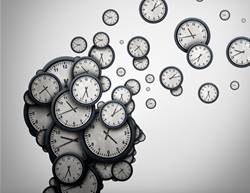You’ve heard it for years: age is just a number. But the spotlight has recently shifted to biological age—that is, how old your cells are, rather than how many candles are on your birthday cake. While several tests claim to measure biological age (some available online), researchers have now developed what they believe is the most accurate method yet. It’s called the Health Octo Tool, and it combines a series of health indicators to estimate how your body is really ageing.
Here’s why it’s getting so much attention right now and how knowing your biological age might actually help you live longer.
What is the Health Octo Tool?
The Health Octo Tool is a new assessment model that draws on a combination of physical exam results and routine lab tests. According to a study published in Nature Communications, these metrics together can provide a clearer picture of your biological age, and even predict your risk of disability and mortality.
The tool is based on a concept called health entropy, which refers to the amount of damage the body accumulates at the molecular and cellular level, and how this affects various organs and systems.
To build the model, researchers analysed data from the Baltimore Longitudinal Study on Ageing, one of the longest-running studies of its kind. They included medical history, physical exam outcomes, and test results. They also validated the tool using data from two other large population studies involving over 45,000 adults.
One of the key measures developed was the Body Organ Disease Number (BODN), which counts how many of your body’s systems—such as cardiovascular, respiratory or neurological—are affected by disease. They also considered major health events like cancer or stroke to generate a score between one and 14.
The tool also includes:
- Speed-Body Clock and Speed-Body Age, which measure how biological ageing affects your walking speed—a well-known marker of ageing-related decline.
- Disability-Body Clock and Disability-Body Age, which estimate how ageing may impact your risk of developing cognitive or physical disability.
All of these metrics can be calculated from standard clinical assessments, making the tool relatively easy to apply in a healthcare setting.
The researchers found that the Health Octo Tool was more accurate than other leading biological age measures, including the frailty index (a commonly used test for predicting vulnerability to age-related decline). In fact, the Health Octo Tool predicted disability and death risk with over 90% accuracy.
Understanding your biological age could give you and your healthcare provider new insight into how your body is really coping—and help you make more informed choices to support healthy ageing.
What makes this better than other biological tests?
The Health Octo Tool uses some of the same clinical data as existing biological age tests, but takes it a step further. While many popular tools measure the impact of individual diseases, they often overlook how a combination of conditions—both major and minor—affects the body as a whole. That’s where this model breaks new ground.
“Health decline is multi-dimensional,” explains physician-scientist and lead study author Dr Shabnam Salimi. “So, we developed a multi-dimensional health metric that captures both intrinsic ageing and the rate of ageing.”
What can knowing your biological age do for your overall health and longevity?
These days, biological age is gaining traction as a popular wellness metric—but health experts say it’s far more than just a trend. “There’s genuine value in seeing where your health stands,” says family medicine specialist Dr David Cutler. “If your biological age is higher than your actual age, that’s a sign something may need to change.”
Your biological age can reflect how quickly your body is accumulating wear and tear—what experts call the mechanisms of ageing. “Understanding how fast we’re ageing can help us respond better to lifestyle changes and treatments aimed at slowing biological decline,” says Dr Salimi.
Geriatrician Dr Parul Goyal, agrees. “Knowing your biological age helps people tune in to what’s happening in their body,” she says. “It can be a great motivator to become more active and emotionally engaged in your health.”
Still, while the insight is valuable, Dr Cutler adds a word of caution: “It’s one thing to know your health status, but another to act on it. Will knowing your biological age actually motivate you to drink less, stop smoking, or eat more whole foods? That depends on the person.”
But for many, a high biological age could be the wake-up call they need to re-evaluate habits and take proactive steps—before age-related conditions start to show up.
What do doctors recommend for healthy aging?
There’s no secret shortcut to ageing well—but doctors agree there are consistent, evidence-based habits that make a difference. While the advice isn’t revolutionary, it’s a strong foundation for long-term health. Here’s what Dr Cutler and Dr Goyal often recommend to their patients:
- Eat a balanced, nutrient-rich diet—ideally a Mediterranean-style eating pattern.
- Limit alcohol or cut it out altogether.
- Avoid smoking or seek help to quit.
- Stay active with daily movement, whether it’s walking, strength training or stretching.
- Keep up with regular health checks, including cancer screenings.
- Always wear a helmet when cycling.
- Buckle up every time you get in the car.
- Reduce stress where you can, and build strategies for managing it.
- Prioritise quality sleep and a consistent bedtime routine.
- Keep your brain engaged with reading, puzzles or learning new skills.
- Stay socially connected with friends, family or community groups.
Dr Salimi adds that her team is currently developing a mobile app to make the Health Octo Tool more accessible and user-friendly for both patients and clinicians.










